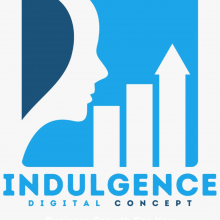
There are 1 Companies in Nigeria
that provide Legal Outsourcing Services!
Nigeria’s ICT sector was worth an estimated $5.48 billion in 2017, constituting 31.7% growth from 2016. The telecommunications segment makes up the vast majority of this at around $3.2 billion. Other important contributors are broadcasting, data center services, cloud, IT, and BPO.
Discover Top IT Companies in Nigeria specialized in Legal Outsourcing and other related services. Find the best IT service providers for your projects.
The legal profession, steeped in tradition and complexity, has undergone a profound transformation in recent years. One of the driving forces behind this transformation is the emergence of legal outsourcing services and companies. These innovative firms have shattered the traditional boundaries of legal practice, offering a compelling argument for the legal industry's future.
Legal outsourcing services encompass a wide range of activities, from legal research and document review to contract drafting and compliance management. By leveraging technology, specialized expertise, and global talent pools, these services offer law firms and legal departments the ability to enhance efficiency, reduce costs, and access a broader spectrum of legal skills.
Handpicked companies • No obligation to hire • 100% risk-free
Explore Top Legal Outsourcing Companies in Nigeria
We offer the best in Digital Advertising, Traditional Advertising, Brands Activation Business Consultancy.
Filter Legal Outsourcing Companies in Nigeria by Cities
Dive deeper and find the company you need close to you or, from a specific city you prefer. Some of the best companies come from smaller places
Find more Legal Outsourcing companies around the world
TechBehemoths is the world's most advanced and user-friendly platform to match IT Companies with real clients without hustle.
The ICT Industry in Nigeria : 2021 Report
Nigeria’s ICT sector was worth an estimated $32.48 billion in 2017, constituting 31.7% growth from 2016. The telecommunications segment makes up the vast majority of this at around $2.1 billion. Other important contributors are broadcasting, data center services, cloud, IT, and BPO.
Nigeria’s combination of relatively stable governance, strategic location, and young and innovative population has made it an attractive destination for multinational companies. Several notable firms such as Oracle, IBM, Microsoft, Cisco, HP, and SAP have offices in Nairobi, and some have based their entire African operations from these offices.
Why you should work with Nigerian IT companies
Digital service providers in the cloud and BPO markets are largely involved in the provision, rather than the development, of services, whilst Nigerian firms are more prevalent in the fintech and eCommerce markets. The physical technology required for the delivery of digital services is typically imported, and it is not clear that Nigeria could produce these products more efficiently.
A key strength in the digital services market is the acceptance of mobile services. Any consumer solution entering the market would have to be mobile-compatible. Mobile healthcare services are expected to grow particularly rapidly as the sophistication of these offerings increases.
In addition, the CEO of Toniceli considers that one of the competitive advantages Nigerian IT companies have compared to those established in neighboring countries is the challenging conditions. Here in Nigeria, we're used to working in challenging and stressful environments. This gives us grit especially when faced with challenging projects. It's just a part of our nature to face challenges headlong and not to back down.
What to pay attention to when working with Nigerian IT companies and web agencies
On the consumer side, it is vital that any proposed digital service offering be mobile-compatible due to the prevalence of mobile usage in Nigeria. Furthermore, smartphone penetration in the region is steadily increasing, thus increasing the sophistication of viable digital service offerings.
Given the acceptance of fintech by the Nigerian population, a possible route to entry in the consumer market is to acquire one of the many smaller fintech firms in the industry. This would resolve some of the primary barriers to entry, most specifically bureaucratic red tape and a lack of local knowledge.
On the corporate side, the most effective route to entry is likely through partnerships with smaller local resellers. This model is already popular in the Nigerian market. A key differentiating feature here will be how well the service adapted to the Nigerian market.
How reliable are Nigerian-based IT companies?
Considered to be one of the biggest African IT hubs, Nigerian web agencies and IT companies compete only with Ethiopian ones in terms of reliability. As many foreign companies have already invested and thus developed the local IT infrastructure and industry overall, Nigerian IT companies find it easier than other neighboring countries to enter the global market and provide their services for accessible prices.
How the Nigerian IT industry relate to the neighboring countries?
Nigeria is actively trying to establish itself as a key ICT hub in the East African region. The country appears to be making good progress in this regard, helped by having a strong connectivity infrastructure and a young, innovative population. Despite this, the country currently faces considerable political uncertainty, and issues surrounding the transparency of tenders remain a major barrier to growth.
Although Nigeria’s score for the metric measuring the economic impact of ICT is not high in absolute terms, it ranks 54th in the world. This supports the conjecture that businesses, government, and consumers will be receptive to new technologies as ICT has already had a substantial impact on the Nigerian economy.
The Business Environment in Nigeria
The CEO of Toniceli - a leading Nigerian IT company, Oluwayomi Olabanjo states that The Nigerian business environment is one which is quite growing rapidly. Most business environments are still very much clustered in the city of Lagos, but over the years, there's been an expansion in economic clusters in other cities. There had been challenges in infrastructure, policies, power, and access to professional training and education, however, things have been getting better over time, especially with the coalition of private and public enterprises addressing these challenges headlong. I would say the biggest factor we've had working for us in the Nigerian market is the availability of youthful talent and the increasing flow of foreign and local capital into the market.
What Makes Nigeria Attractive for International IT Companies?
Oluwayomi Olabanjo mentions on this topic that What makes it attractive is the abundant supply of youthful talent. However, unstable government policies, infrastructure, and power shortages are challenges making it unattractive for international IT companies.
Yet, the Nigerian Communications Commission had been doing quite a lot with the startup bill and also with the establishment of public-private incubator programs within the country. I really do believe they should be given credit for this.
Lagos, Ibadan - Best cities for doing IT business in Nigeria
Lagos due to the fact that it has always been the economic hub of the country, hence the IT industry has found it quite easier to experience growth in that space.
Ibadan due to the fact that it is a fast growing economic hub and also, there's less capital expense in setting up and running a company here. - mentioned Oluwayomi Olabanjo.
What is Legal Outsourcing and what are its benefits for your projects?
The legal profession, steeped in tradition and complexity, has undergone a profound transformation in recent years. One of the driving forces behind this transformation is the emergence of legal outsourcing services and companies. These innovative firms have shattered the traditional boundaries of legal practice, offering a compelling argument for the legal industry's future.
Legal outsourcing services encompass a wide range of activities, from legal research and document review to contract drafting and compliance management. By leveraging technology, specialized expertise, and global talent pools, these services offer law firms and legal departments the ability to enhance efficiency, reduce costs, and access a broader spectrum of legal skills.
At the heart of this revolution are the legal outsourcing companies, which have emerged as the architects of change in the legal landscape. These firms bring together teams of skilled attorneys, paralegals, and legal professionals who provide legal support services remotely.
Critics of legal outsourcing often raise concerns about the reliability of these services. However, the reality is quite different. Established legal outsourcing companies adhere to strict quality control measures, ensuring the accuracy and compliance of their work. Additionally, many of these firms are ISO-certified, further attesting to their commitment to quality and reliability.
Legal outsourcing companies harness cutting-edge tools and technologies to streamline their services. They employ advanced document review software, artificial intelligence (AI) for contract analysis, and secure data management systems to facilitate efficient legal processes. These tools enhance accuracy, reduce turnaround times, and promote data security.
Legal outsourcing is not limited to just one facet of the legal profession. It extends to various related services, including litigation support, intellectual property management, due diligence, and e-discovery. This comprehensive approach allows legal professionals to access a broad spectrum of specialized services, all under the umbrella of legal outsourcing.
Choosing the right legal outsourcing company is a strategic decision for law firms and legal departments. Consider factors such as the firm's expertise in your area of law, their track record, security measures, and scalability. Legal professionals can now exercise the power of choice in aligning with a legal outsourcing company that complements their specific needs and goals.
Legal outsourcing services are invaluable for a wide range of legal projects, including:
-
Document Review: Scanning vast volumes of documents for relevant information.
-
Contract Management: Drafting, reviewing, and managing contracts efficiently.
-
Legal Research: Conducting in-depth research on legal issues and case law.
-
Compliance and Regulatory Work: Ensuring adherence to complex regulatory requirements.
-
Intellectual Property Management: Protecting and managing intellectual property portfolios.
Legal outsourcing services find applications across industries and sectors, including law firms, corporations, financial institutions, healthcare providers, and government agencies. The ability to access specialized legal expertise on-demand offers a competitive edge and cost-effective solutions.
The legal industry's transformation through outsourcing is not just a matter of convenience but a necessity in the rapidly evolving global business landscape. Legal professionals who embrace outsourcing gain access to a vast talent pool, specialized expertise, and cost savings. This strategic shift allows law firms and legal departments to focus on core competencies, deliver enhanced client value, and remain competitive in a digital world.
As technology continues to evolve, legal outsourcing companies will adapt and innovate. Artificial intelligence, machine learning, and blockchain technologies are poised to reshape the legal landscape further. Legal professionals who seize these opportunities will find themselves at the forefront of a legal revolution that is redefining the practice of law.
